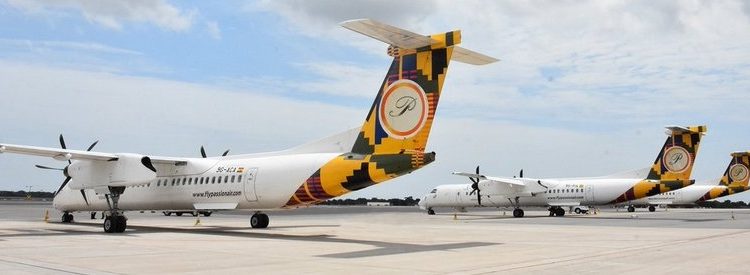Mid-Air Turbulence Triggers Safety Concerns
On Saturday, June 14, 2025, passengers aboard PassionAir’s Flight OP 149 from Kumasi to Accra experienced unexpected and intense mid-air turbulence. The incident caused significant discomfort but, thankfully, resulted in no serious injuries. PassionAir has since released a public statement explaining the cause and reaffirming its commitment to passenger safety.
Turbulence Attributed to Seasonal Weather Conditions
In its official statement, PassionAir attributed the turbulence to seasonal weather variations common during Ghana’s rainy season. “Heavy rainfall, storms, strong high-altitude winds, crosswinds, and temperature fluctuations” were all cited as contributing factors that led to unstable atmospheric conditions.
The airline specifically noted that the Kumasi–Accra route — and other domestic routes like Takoradi, Tamale, Sunyani, and Wa — may be more prone to such turbulence during this period.
Read Also: Former Railways Minister Joe Ghartey Cleared in Sky Train Probe, Says Deputy AG
Airline Apologises and Reassures Passengers
PassionAir extended an apology to everyone affected, acknowledging the discomfort passengers faced during the flight. The statement emphasised that the airline “monitors weather conditions in collaboration with meteorological and aviation authorities” to minimise risks.
It added that while light to moderate turbulence is expected, the airline—and its crew—are prepared for rare instances of more severe conditions.
Safety and Compliance at the Forefront
The airline reiterated that passenger and crew safety remains its highest priority, and confirmed that all operations continue to comply with strict regulatory standards.
“We will take every necessary measure to ensure minimal impact on comfort and well-being,” the statement read.
Expert Insight on Turbulence Risks
Aviation experts stress that turbulence remains one of the most common causes of discomfort in flight and, occasionally, flight-related injuries. Seasonal shifts—especially during rainy seasons—can elevate the risk by producing unstable air currents. Airlines fly at specific altitudes and adjust routes, but sudden turbulence may still occur when weather patterns change rapidly .
What Passengers Should Know
-
Always keep seatbelts fastened when seated, even if the seatbelt sign is off.
-
Listen carefully to crew safety announcements.
-
Report any discomfort immediately—crew are trained to assist.
-
Consider flight insurance if flying frequently during known turbulent seasons.
Looking Ahead: How PassionAir Is Responding
PassionAir’s proactive communication and honest acknowledgment of the incident signal its commitment to transparency and passenger care. The airline plans to:
-
Strengthen real-time weather monitoring systems
-
Continue close collaboration with Meteorological Services
-
Provide additional training for crew on turbulence response
-
Review and update safety protocols and communication with passengers

